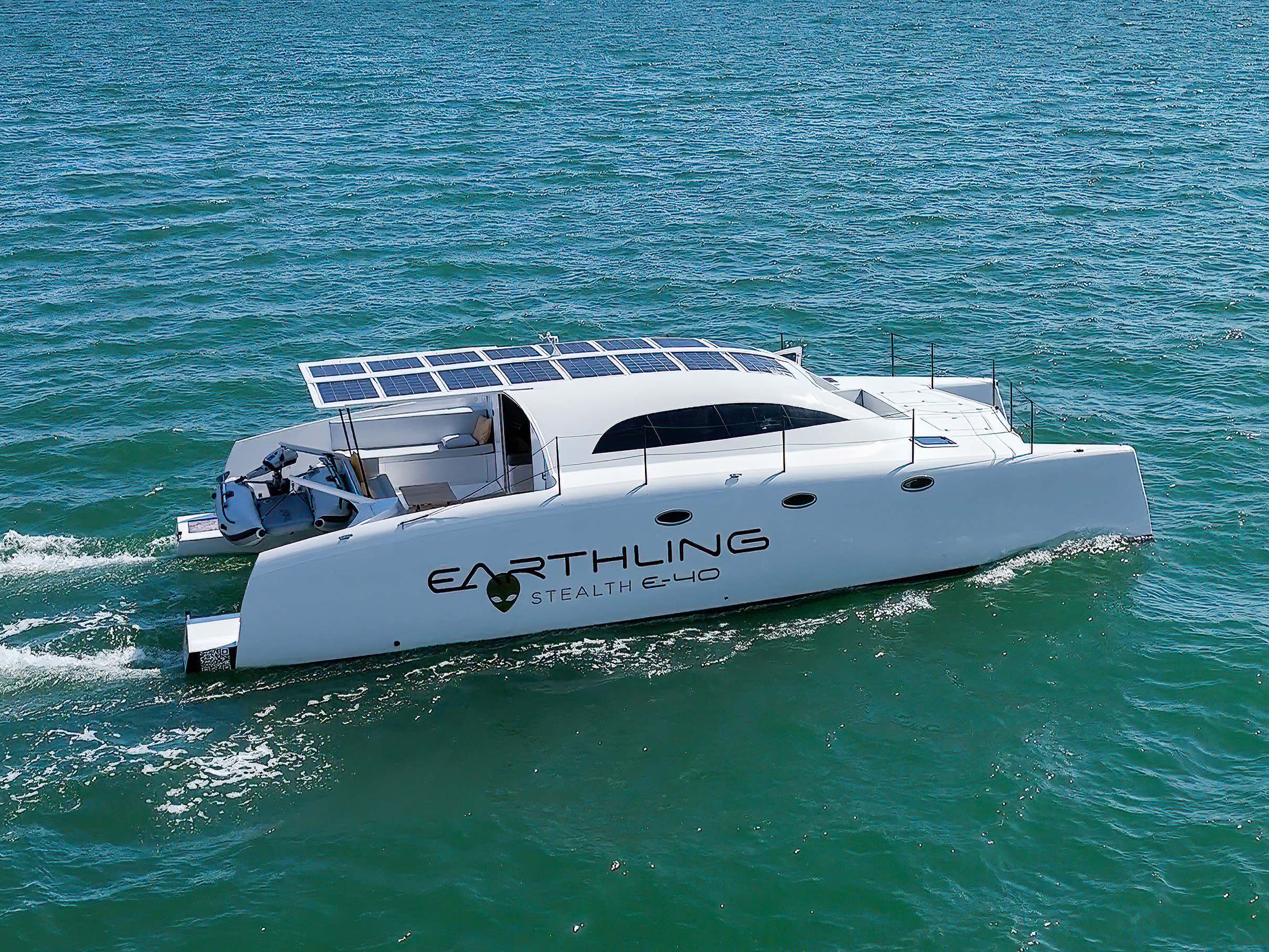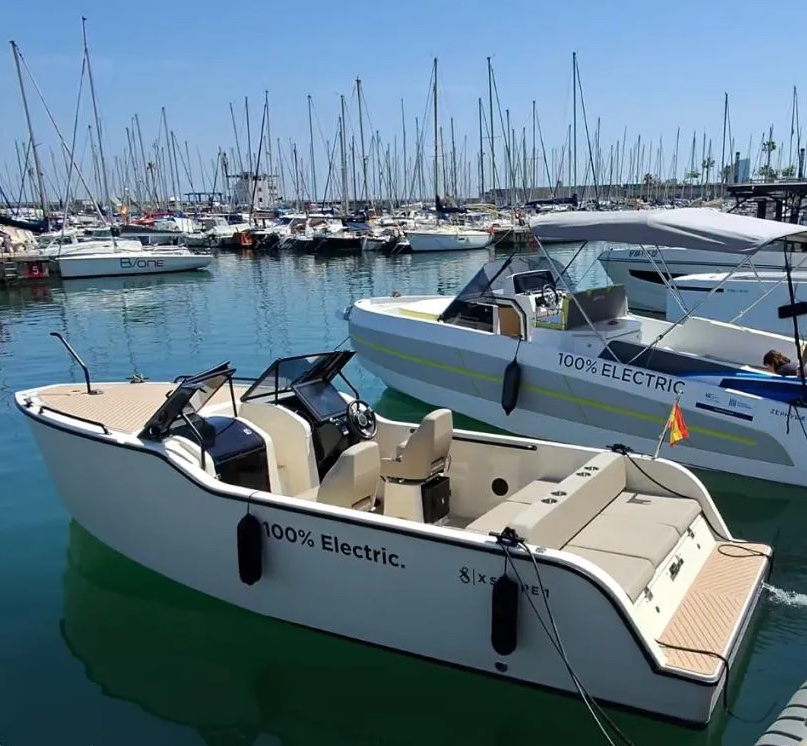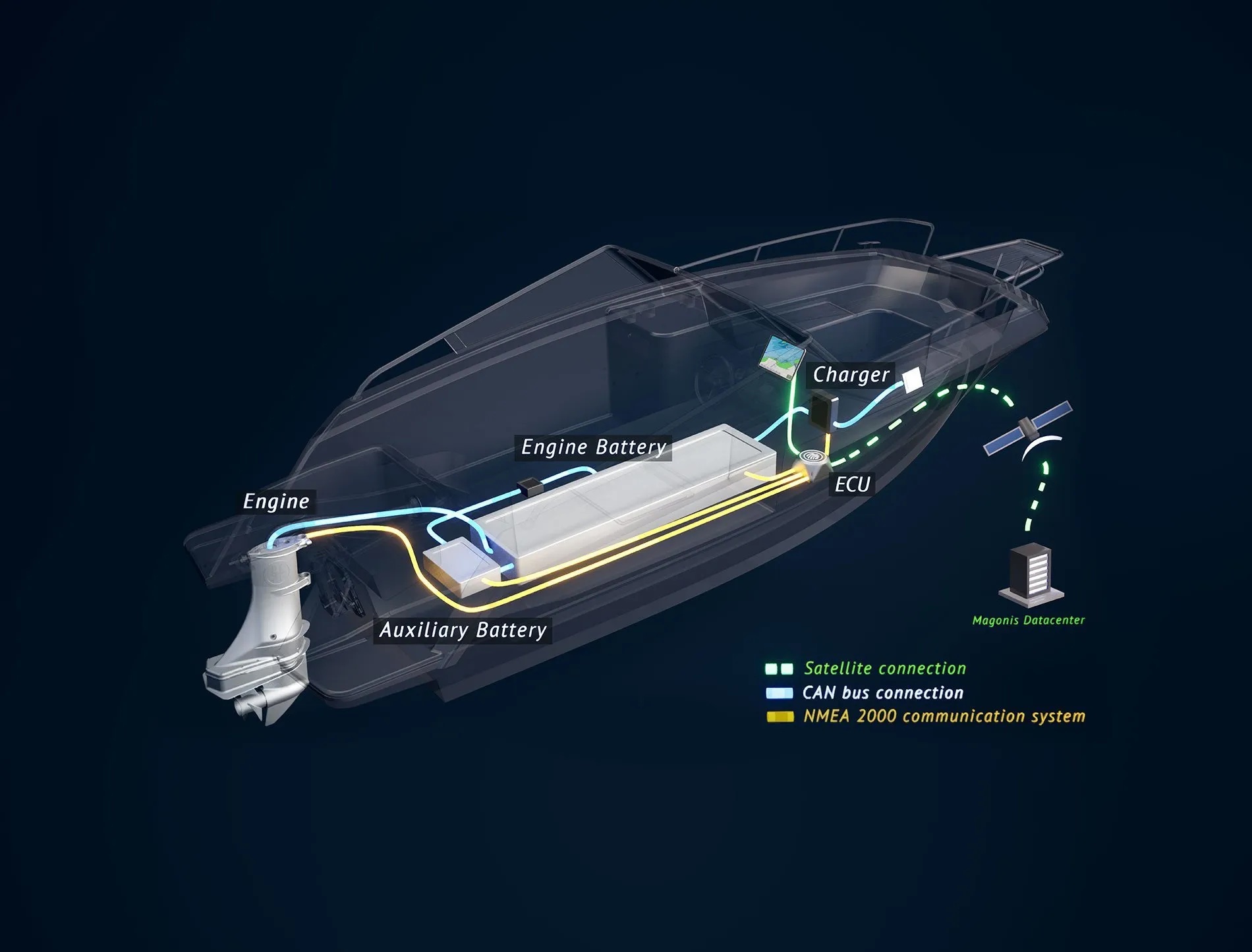Electric vs Diesel Boats: Cost Comparison 2025

Electric boats are gaining traction in 2025 for their lower emissions and reduced running costs compared to diesel boats. However, they come with higher upfront prices. Here's a quick breakdown:
- Upfront Costs: Electric boats are more expensive initially due to advanced batteries, while diesel boats are cheaper to buy.
- Running Costs: Charging electric boats costs €15-25 per trip, compared to €250-300 for diesel fuel.
- Maintenance: Electric motors require less maintenance - no oil changes or frequent repairs.
- Environmental Impact: Electric boats emit 98% less CO2 and operate quietly, ideal for eco-sensitive zones.
- Best Use: Electric boats suit short trips and areas with charging infrastructure; diesel is better for long distances.
Quick Comparison
| Factor | Electric Boats | Diesel Boats |
|---|---|---|
| Upfront Cost | Higher | Lower |
| Running Cost | €600-800/year | €3,000-4,000/year |
| Maintenance | Simpler, fewer repairs | Frequent engine work |
| Emissions | Minimal (6.3 kg CO2 per trip) | High (554 kg CO2 per trip) |
| Noise | Quiet | Loud |
| Best For | Short trips, eco-friendly zones | Long distances, smaller budgets |
Electric boats save money long-term and are better for the environment, but diesel boats remain a practical choice for certain use cases. Choose based on your needs, trip lengths, and access to charging stations.
Diesel vs Gas Engines for Bigger Boats - Which is Better?
Upfront Purchase Costs
When looking at electric versus diesel boats in 2025, the purchase price is a major factor. While the gap between these two options is shrinking, the difference in initial costs is still noticeable.
Electric Boats: Higher Initial Costs
Electric boats tend to have a steeper upfront price because of their advanced battery systems and electric propulsion technology. For instance, the Soel Senses 62 luxury catamaran by Volta Electric Yachts starts at €3,490,000, while their SoelCat 12 is priced at €560,000. These prices reflect the expense of the cutting-edge battery systems required.
"The total cost of ownership becomes less expensive for electric boats after the third year, making them an increasingly attractive option for long-term boat ownership." [1]
Diesel Boats: Lower Initial Costs
Diesel boats are generally more affordable to purchase initially, thanks to well-established manufacturing methods and simpler engine designs. Traditional diesel engines and their components are far less expensive than electric propulsion systems with battery banks [3]. This affordability makes diesel boats appealing to first-time buyers or those with tighter budgets.
How Technology Is Reducing Electric Boat Costs
Advances in technology are beginning to shift the cost equation. Vision Marine Technologies, for example, has introduced standardized electric powertrain systems for boats between 16 and 29 feet [4], which helps cut production costs through scalability.
Here are some key factors making electric boats more affordable:
| Technology Factor | Impact on Cost |
|---|---|
| Battery Improvements | More efficient and lower-cost lithium-ion batteries |
| Solar Integration | Less reliance on charging infrastructure |
| Standardized Components | Reduced costs through mass production |
| Advanced Production | Streamlined manufacturing processes |
Big players like Brunswick Corporation are pouring resources into electric boating technology, signaling that lower prices could be on the horizon [4].
Running Costs and Maintenance
The daily expenses and upkeep for electric and diesel boats show clear differences, especially when you consider long-term ownership costs.
Fuel Costs vs. Charging Costs
For a typical 8-meter diesel boat, a 40nm trip burns through 213 liters of fuel, costing around €250-300. In contrast, an electric boat completes the same trip for just €15-25 in charging costs [1]. Over a year, diesel boats rack up €3,000-4,000 in fuel expenses, while electric boats stay in the €600-800 range. The environmental difference is just as stark: diesel boats emit 554 kg of CO2 per trip, compared to only 6.30 kg for electric ones.
"Electric outboard users can save about $9,940 over five years based on normal usage, primarily due to savings in fuel and maintenance." [2]
But it’s not just about fuel - maintenance is another area where electric motors shine.
Maintenance: Electric vs. Diesel
Electric motors are simpler in design, which means fewer repairs and lower costs [2]. They don’t require oil changes, antifouling, or frequent mechanical fixes, keeping maintenance expenses low. Plus, fewer breakdowns lead to less waste and a reduced environmental footprint over the boat's lifetime.
Long-Term Savings with Electric Boats
Electric boats offer more than just fuel savings. For example, in places like the Netherlands, where gas-powered boats are set to be banned by 2025 [2], they’re an increasingly smart choice. With ongoing improvements in battery technology and fewer maintenance demands, electric boats are becoming a cost-efficient and eco-friendly option for marine travel.
sbb-itb-76a5619
Environmental Impact and Practical Use
Quieter Operation and Cleaner Emissions
Electric boats are a game-changer when it comes to reducing noise pollution. They offer a much quieter ride, making them perfect for areas like residential neighborhoods and nature reserves where noise levels matter. Plus, the lack of diesel engine noise creates a more peaceful cruising experience while helping protect marine life and sensitive ecosystems [2].
Real-World Examples of Electric Boats
Vision Marine Technologies has made waves with its E-Motion powertrain, which uses Octillion's high-density lithium-ion batteries. This setup not only delivers impressive acceleration compared to diesel engines but also operates with zero emissions [4]. Meanwhile, Volta Electric Yachts' Sun Concept CAT 12.0 Cruise proves that even larger luxury vessels can go electric. Spanning 11.90 meters, this yacht combines electric propulsion with premium features, showing how functionality and eco-friendly technology can go hand in hand.
Solar-Powered Innovations
Solar power is reshaping the electric boating scene by extending range and reducing the need for frequent charging at docks. For instance, the Soel Shuttle 14 uses advanced charging systems to boost its operational range while keeping its environmental footprint low [2]. Volta's ZEN50 model takes it a step further by blending solar panels with electric propulsion, creating a self-sufficient system that cuts down on running costs and keeps emissions at zero.
Smart systems onboard these boats allow captains to track battery usage, ensuring longer trips without constant recharging. With ongoing advancements, electric and solar-powered boats are becoming practical solutions for a variety of marine activities, from leisure cruising to commercial operations.
Conclusion
Key Points Recap
Electric boats may have a higher upfront cost, but they can save you money in the long run with lower operating and maintenance expenses. According to Lanéva Boats, these savings often outweigh the initial investment by the third year of ownership [1]. Plus, as battery technology and power systems improve, these benefits are only expected to grow.
On top of that, electric boats offer a major advantage when it comes to reducing emissions. They produce far fewer pollutants compared to diesel-powered options, making them a better fit for the growing push toward cleaner marine transport. Take the Netherlands, for example - they're planning to phase out gas-powered boats entirely by 2025 [2].
Choosing Between Electric and Diesel Boats
When deciding which type of boat suits your needs, think about these factors:
| Factor | Electric Boats | Diesel Boats |
|---|---|---|
| Best Use | Short trips, day cruising, eco-friendly zones | Long-distance trips, smaller vessels needing balanced weight |
| Upfront Cost | Higher initial cost but lower long-term expenses | Lower upfront cost but higher ongoing costs |
| Maintenance | Easier upkeep, fewer parts to service | Requires frequent engine work, more complex systems |
| Environmental Impact | No direct emissions, very quiet | Higher emissions, louder operation |
Your decision should depend on how you plan to use the boat and whether charging stations are accessible in your area. If you're focused on day trips or operate in regions with reliable charging infrastructure, electric boats can be a smart choice. Options like the Volta ZEN50 and Soel Shuttle 14 even offer solar charging, giving you extra freedom for longer outings.
FAQs
Are electric boats a good idea?
Electric boats are becoming more practical in 2025, offering clear benefits like lower running costs and reduced emissions. Deciding between electric and diesel depends on factors such as upfront costs, how you plan to use the boat, and the availability of charging infrastructure in your area.
Here’s a quick breakdown of the benefits:
| Factor | Benefit | Explanation |
|---|---|---|
| Operating Costs | Lower | Up to 60x cheaper than diesel engines |
| Environmental Impact | Cleaner | Minimal emissions and quieter operation |
| Maintenance | Simpler | Fewer parts mean less routine upkeep |
| Performance | Improving | Advances like Vision Marine's E-Motion system are closing the gap |
That said, there are some challenges. Electric boats often come with a higher initial price tag, and reliable charging stations are still growing in number. However, these upfront costs are usually balanced out by long-term savings on fuel and maintenance.
"Electric boats are suitable for most recreational and commercial uses, especially for those who prioritize environmental sustainability and cost efficiency. However, sailors with smaller boats or those seeking optimal performance might find diesel engines more suitable due to weight and space considerations" [3].
The marine industry is clearly shifting gears. Companies like Brunswick Corporation are heavily investing in electric technology [4], and regulatory changes - like the Netherlands' upcoming ban on gas-powered boats by 2025 [2] - are pushing the market toward electric propulsion.
For day trips or casual recreational use in areas with good charging networks, electric boats strike a great balance between eco-friendliness and cost savings. As technology improves, they’re set to play a major role in sustainable marine travel, appealing to boaters who care about both the planet and their wallets.
.webp)








.png)

